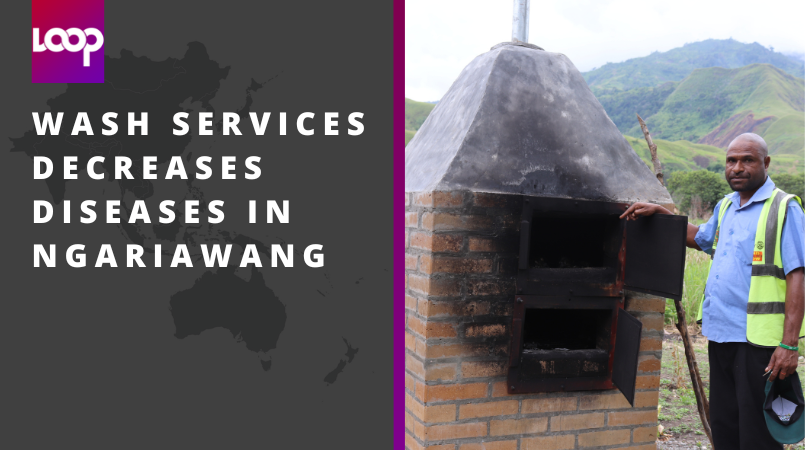
The Water for Women-Markham WASH program implemented by World Vision had seen the need for proper water, sanitation, and hygiene (WASH) services in the Ngariawang health facility, Markham district of Morobe province.
The WASH Program funded by Australian Government’s Water for Women fund was aimed to deliver improved health outcomes through inclusive and equitable water, sanitation and hygiene across Papua New Guinea.The Community Health Worker who runs the facility, Lawrence Yasaking, would usually dig out pits for disposal and burning of clinical wastes.
“Patients were using pit toilets until the toilets were accidentally burnt down due to bush fire, the health facility lacked proper toilets and patients started open defecating in the bushes and near the river”. Said Yasaking.
Due to the WASH facilities and toilets constructed, it will prevent patients to open defecate in the bushes and river banks.
The facility has been in operation for years and is currently at its peak period as he assists 20-30 patients in a day only when there are enough drugs in stock. The facility caters to a total catchment population of 2,000 to 4,000 people in 6 different communities located along the Okuk highway.
According to Yasaking common diseases reported to the facility include; Malaria, scabies, and coughs and children are mostly diagnosed with those diseases.
“I also provide antenatal and family planning services for the pregnant mothers as well. Drug shortage leads to patients being unable to be treated for approximately 3 weeks because drug stock runs out in a week and the supplies come in monthly.
“I struggle to look for drugs to help my patients because the monthly supplies are not enough.” He added.
World Vision assisted with building 2 modern toilets, a hand-washing basin with a 200 litres water tank, and an incinerator.
The program is piloted in the Markham district and its current footprint includes 15 schools WASH construction, 5 Healthcare facilities WASH construction, and more than 60 communities using the Community Led Total Sanitation (an approach to create open defecation-free communities).
“Patients are now using the toilets, I keep the keys to the toilets and I make sure the toilets are clean and patients wash their hands after using the toilets and I have been burning the clinical wastes. I am thankful for the support from World Vision in Ward 20 and other communities in Leron-Wantoat.” Yasaking emphasized.
